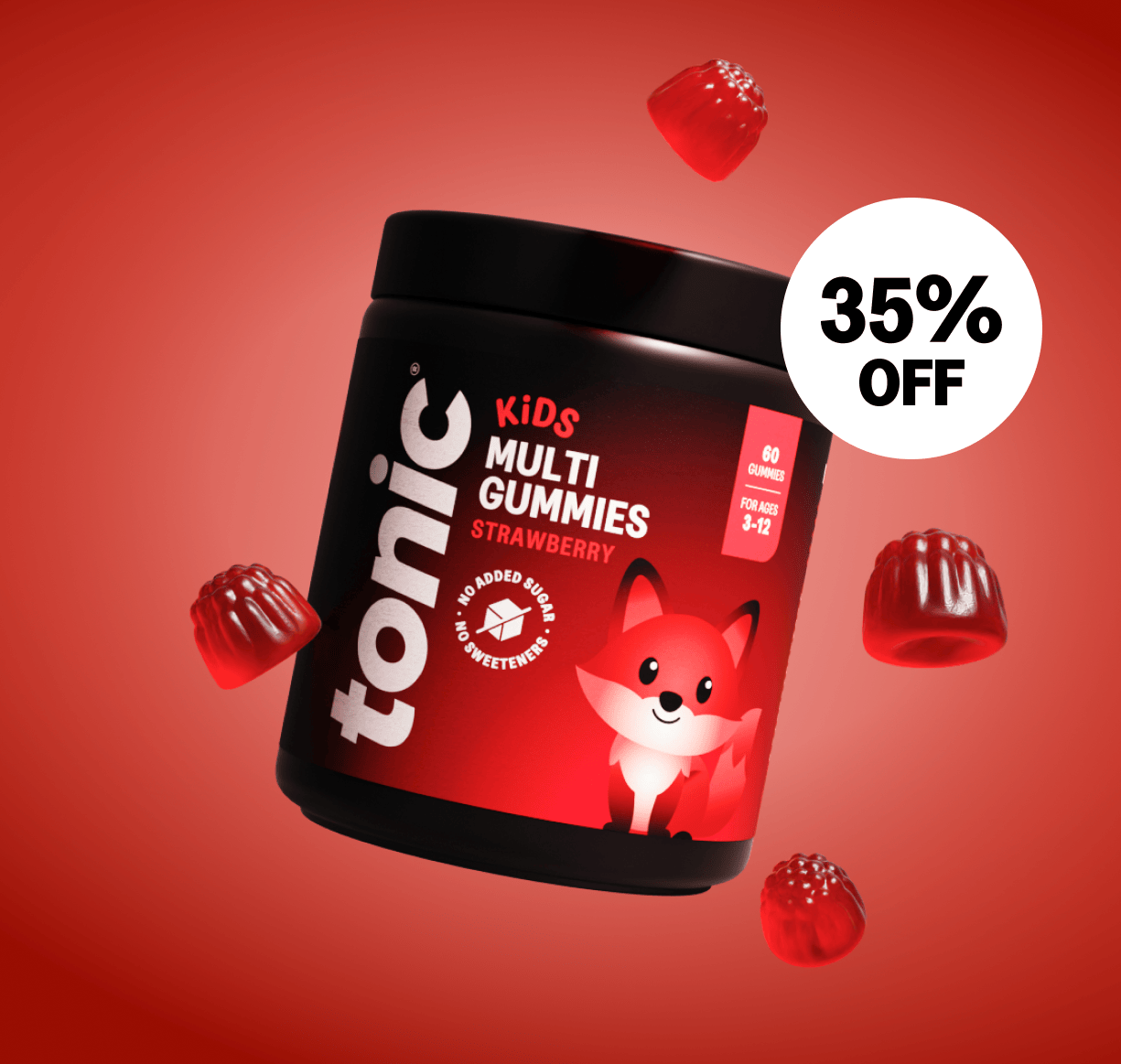Taking supplements is often seen as a shortcut to better energy, stronger immunity, or faster recovery. But while they can be incredibly helpful, most people don't realise that the how matters just as much as the what.
If your supplement routine feels random, ineffective, or overwhelming, it may be time to get more strategic.
In this guide, we’ll walk through how to take supplements in a way that maximises absorption, improves effectiveness, and reduces waste. From iron to probiotics to vitamin C, here are the key principles to get the most from your routine.
Supplements Should Meet a Specific Need
Supplements should support your body—not clutter your routine. It’s easy to be tempted by the latest wellness trend or influencer-endorsed blend, but clarity is key.
- Are you correcting a known deficiency (e.g., low iron, B12, or vitamin D)?
- Supporting a health condition (like gut repair or hormone balance)?
- Trying to boost general wellbeing?
Avoid layering on multiple supplements without a clear purpose. It can lead to nutrient competition or side effects.
For example: High-dose zinc without copper can deplete your copper levels. Similarly, excessive iron without need can promote oxidative stress.
Start with testing when possible—iron studies, vitamin D, B12, and folate are great baseline labs to guide your choices.
Timing Matters: When Should You Take Your Supplements?
When you take your supplements can affect how well they work. Some need an empty stomach; others require fat or specific digestive conditions.
Morning
- Probiotics (non-spore-based): Best taken on an empty stomach for improved survival.
- Vitamin C: Water-soluble and energising—ideal for morning or early afternoon.
- B vitamins and adaptogens: Support energy and natural cortisol rhythm.
Start strong with Tonic Health Energy & Hydration, a refreshing blend of B-vitamins, Panax ginseng, and key electrolytes for clean energy without caffeine crashes.
With Meals
Fat-soluble vitamins (A, D, E, K), omega-3s, and CoQ10 require fat for absorption. Support your immune system with Tonic Daily Immunity, featuring a potent mix of vitamin C, D, A, E, zinc, selenium, and more.
Before Bed
Magnesium, zinc, and calming herbs promote deep relaxation and overnight repair. Wind down with Tonic Rest & Recover, a 4-in-1 blend combining magnesium, lemon balm, ashwagandha, and more to help you rest and recover effectively.
Be Aware of Food and Fibre Interactions
Even healthy habits can interfere with supplement absorption.
Key Interactions
- Iron: Avoid with calcium, dairy, tea, or coffee. Instead, pair with vitamin C for better absorption.
- Probiotics: Avoid hot drinks or alcohol around the same time.
- Fibre (like psyllium husk): Can trap nutrients—leave at least a 1-hour gap.
- Activated charcoal and binders: Leave a 2-hour window around supplements or medications.
Want to support your child's gut health? Tonic Kids Pre + Probiotic Gummies are a delicious and effective way to nourish their microbiome. With 5 billion live cultures and fibre-based prebiotics in every gummy, they're gentle on tummies and free from artificial junk.

Combinations That Enhance Supplement Benefits
Certain nutrients are more effective when taken together—this is where synergy matters.
- Iron + Vitamin C: Enhances non-heme iron absorption.
- Vitamin D3 + K2 + Magnesium: Helps calcium go to bones, not arteries.
- Probiotics + Prebiotics: Together, they form synbiotics—prebiotics feed the beneficial bacteria.
- Magnesium + B6: B6 boosts magnesium absorption into cells.
- Zinc + Copper: Balanced intake is crucial to prevent imbalance.
Both Tonic Daily Immunity and Tonic Kids Pre + Probiotic Gummies are thoughtfully formulated with nutrient synergy in mind, making it easier to get the most out of each dose.

Are You Taking Medications? Read This
Supplements are natural but still active compounds. Be mindful of how they interact with medications.
- Minerals like calcium, magnesium, and iron can reduce absorption of thyroid meds or antibiotics. Allow at least 4 hours.
- St. John’s Wort affects liver enzymes and medication efficacy.
- High-dose vitamin C may interfere with certain chemotherapy drugs and lab tests.
Long-term medications may deplete essential nutrients:
- Statins: Deplete vitamin D and CoQ10.
- PPIs: Lower magnesium and B12.
- Diuretics: Can unbalance electrolytes.
Work with a health professional to make sure your supplement routine fits safely alongside your medication plan.
How to Get the Right Dose
Not all supplements are created equal—and neither are their doses. Here’s how to get it right.
Start with Need
Supplement only when necessary.
- Use iron only with confirmed deficiency.
- Be cautious with zinc—excessive intake affects copper levels and immunity.
- Monitor vitamin D levels to avoid toxicity.
- Think Form and Function
- Magnesium: Glycinate (calm), citrate (constipation), malate (energy)
- Vitamin C: Buffered or liposomal forms for better gut tolerance
- B Vitamins: Methylated versions absorb better—ideal if you have MTHFR variants
Split the Dose
- Water-soluble vitamins like B-complex and vitamin C are better absorbed in smaller doses throughout the day.
- Probiotics work best with regular use and strain-specific timing.
Go Low and Slow
Introduce new supplements gradually to avoid gut upset. This includes iron, magnesium, vitamin C, and probiotics.
Match Dose to Life Context
- During stress, travel, or illness, consider increasing vitamin C, zinc, magnesium, or electrolytes.
- For nutrient deficiencies, retest after 8–12 weeks to avoid overshooting.
Smarter Supplementation for Better Results
Supplements aren’t magic—they’re tools. And like any tool, they’re only effective when used correctly.
Understand timing, food interactions, synergistic pairings, and personalised dosing to upgrade your supplement strategy from guesswork to results.
To simplify your routine, explore our best-in-class options:
- Tonic Energy & Hydration – natural B-vitamin boost + electrolytes
- Tonic Daily Immunity – full-spectrum immune support
- Tonic Rest & Recover – evening magnesium blend for calm and sleep
- Tonic Kids Pre + Probiotic Gummies – daily digestive support for little tummies
Your body will thank you.







Leave a comment
All comments are moderated before being published.
This site is protected by hCaptcha and the hCaptcha Privacy Policy and Terms of Service apply.